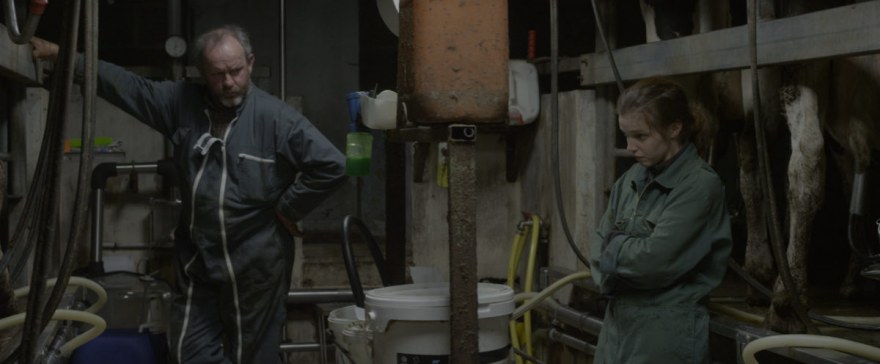Tea time with À la chasse
Interview with Akihiro Hata, director of À la chasse
Was putting a female character in this very masculine world the starting point for telling this story?
Anaïs is the only woman in the film because of my desire to reenforce the idea that she is completely on her own in this fight. I took advantage of the fact that the world of farming remains mainly male, even if there are more and more women. This was a way to isolate her. In fact, the character was inspired by a young botanist who runs a farm by herself. Her strength, will, and determination touched me deeply. She had something in her that said that nothing could stop her.
Anaïs is the only young person on screen, until the arrival of the neighbor’s new employee. Why did you not wish to surround her with other young people?
I wanted the relationship between Anaïs and Bruno to be like a bubble, a separate world. That’s why I chose to clearly separate the two youths from the others, the adults. I depict the farming world in a harsh way. The economic crisis has crippled them, communities have collapsed, and cooperation has dissolved. Everyone is on their guard. It may be the end of them. In that context, I wanted the meeting of the two youths to open up a new horizon, something that goes beyond the harshness of what is happening, a future, a hope. Actually, many young people go to the city to pick up another job. Many farmers describe how difficult it is to find someone within their family who wants to take over running the farm. I wanted to focus on these two youths in order to depict this reality.
Are you drawn to solitary characters ? Do you prefer Lucky Luke or Salinger?
Perhaps, yes. I think it’s a bit of a leitmotif for me. To answer your question, since I didn’t grow up in Europe, I certainly don’t have the same connection to Lucky Luke. In fact, I know very little about him. So, I would say Salinger even if I don’t have any link to what he wrote. I do remember that Catcher in the Rye affected me when I read it as a young person.
Anaïs’ father appears to be suffering from depression, was that an intention? Why did you want to give him so little action?
Of course it was an intention. He’s a character who has worked on the farm all his life, every day from morning until night. It was his life and his pride, even if farming is such a difficult career. The day he realizes that his childhood friends and colleagues suspect him of stealing, he loses all motivation to continue. The notion of solidarity is very important in the world of farming. Dominique and the others had always helped each other. He is deeply disappointed because he thought that even if they all suffered economically, even if the small farms are disappearing more and more, that he could still find a way to get by, thanks to his community of childhood friends.
You place your characters in an oppressive ambience in the middle of a community that seems to know them well. Are you interested in the importance of one’s entourage and social pressures?
Initially, I wanted the film to have a thriller aspect. That was also my first desire, my starting point for this project. While observing the farming world, I felt that all the required elements were there to do a thriller. For example, this community where everyone knows each other. This allowed me to create a closed and oppressive world. The farms and fields are in total darkness once night falls. This inspired scenes based on the conventions of thrillers.Social pressures change our lives, our thinking, and our choices. In my film, all the farmers fight in their own way, maybe except Dominique who gives up. They fight to not be crushed, to resist, to not disappear.
What interests you in the relationships of trust and mistrust dealt with in À la chasse?
One of the main subjects of the film is « the collapse of a community ». By forming cooperatives, farmers try to survive as a community during these economic hard times. Despite that, the tiny event, the theft of a piece of equipment, breaks up this solidarity. Trust is won over by fear, fear of dying out. And people begin suspecting each other. I see in this story something that is universal, that goes well beyond the farming milieu.
Any cinematic coups de cœur in the past year you’d like to tell us about?
Because 2016 was a busy year, I missed a lot of the films I wanted to see, like Aquarius and Black Diamond. I’m planning to catch up with a lot of films. I did manage to see Toni Erdmann, The Death of Louis XIV, Last Train to Busan.
If you have already attended the Clermont-Ferrand Film Festival, could you give us an anecdote? If not, any expectations ?
I came in 2015 and I have great memories, especially interacting with audiences. I can’t wait to see the other films, too.
À la chasse is being shown in National Competition F8.









